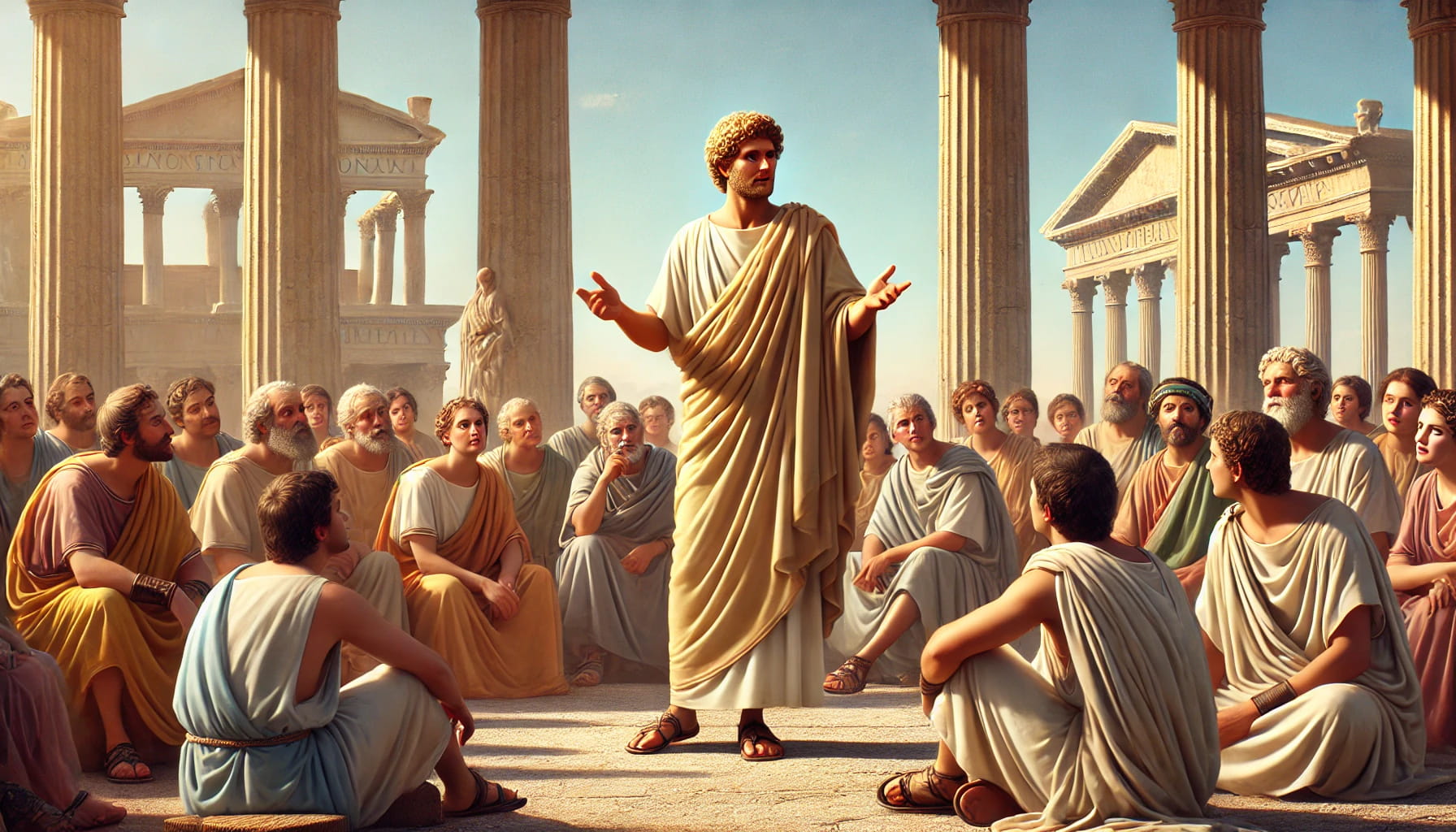Musonius Rufus, one of the most influential Stoic philosophers of the 1st century AD, argued that virtue is the only secure path to happiness. Unlike other philosophical schools that theorized about the nature of pleasure or well-being, Musonius focused on the practical aspect of virtue. For him, a good life was not an abstract goal but something built through daily actions and self-control. In a world as turbulent as the Roman Empire, filled with inequalities and adversities, Musonius taught that only those who lived according to virtue could experience lasting happiness.
Virtue as the Central Pillar
The concept of “areté” (virtue) in Stoicism has deep meaning: it refers not only to moral goodness but to excellence in character and action. Musonius believed that all people, regardless of social status or gender, had the ability to achieve virtue, and that this was the essential requirement for eudaimonia, or full happiness. According to Musonius, virtue was not reserved for theoretical philosophers or the intellectual elite; anyone, in any situation, could live according to the principles of virtue.
One of the most interesting aspects of Musonius’ teaching is that he saw virtue as accessible and practical. It wasn’t about grand heroic acts, but rather small daily decisions: how we treat others, how we control our passions, and how we face difficulties. Therefore, happiness did not depend on external factors such as wealth, health, or status, but on how one reacted and responded to life’s circumstances.
Happiness Through Self-Control
For Musonius, self-control was one of the most important virtues. Only by controlling desires and emotions could one live in harmony with reason, a fundamental principle of Stoicism. This capacity for self-mastery was essential to avoid the suffering caused by the constant pursuit of fleeting pleasures or despair in the face of misfortunes. In this way, those who practiced self-control were freer, as they were not enslaved by their passions.
Musonius also emphasized the importance of moderating behavior in basic aspects of life, such as food, sleep, and work. A simple life, guided by temperance and balance, allowed individuals to focus their energy on practicing virtue, which led to greater inner peace and, consequently, happiness.
Moral Action as the Key
Musonius didn’t just want people to think about virtue; he insisted that it had to be lived. For him, virtue was an active process, something demonstrated in every decision and action. This is where his teaching is particularly relevant today: in a world saturated with distractions and where we often seek instant gratification, Musonius’ lesson invites us to reconsider what kind of life leads to lasting happiness.
Conclusion
Musonius Rufus leaves us with a timeless lesson: true happiness is not found in external things, but in cultivating virtue and living in harmony with reason. By living with moderation, practicing self-control, and making conscious decisions that reflect moral principles, we can find deep happiness, resilient to life’s ups and downs. Thus, virtue, according to Musonius, is not only the path to a good life but the only path to a truly happy life.

